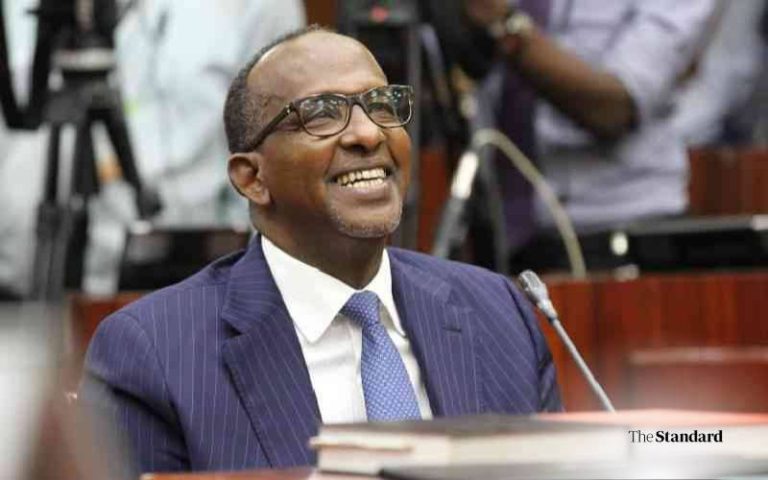Health Cabinet Secretary Hon. Aden Duale and governors from across the country have met to address delayed salaries, outdated systems, and resource shortages affecting health workers.
For months, frontline providers have been under pressure—expected to deliver life-saving care under Universal Health Coverage (UHC), despite challenges threatening the country’s ambitious health reform agenda.
A key concern raised was the absorption of UHC staff. Many county-employed healthcare workers continue to operate under uncertain contracts, inconsistent pay, and unclear employment terms.
“Imagine a doctor in a rural clinic trying to register a patient on an app without power or a signal. That’s the reality in many counties,” he said.
To solve this, the Council of Governors, in collaboration with the Ministries of Health, ICT, and Energy, agreed to form a task force that will address electricity and connectivity gaps—essentials for the full digital rollout.
The Digital Health Agency (DHA) was tasked with accelerating the rollout of devices and digital tools to all public health facilities and providing governors with a detailed implementation roadmap. Counties’ existing health systems, like AfyaKE, will be evaluated for inclusion in the national Health Information Exchange portal.
“This is not just about policy—it’s about people. People who are sick, people who need care, and the people we have entrusted to deliver that care,” said Wajir Governor and Chair of the Council of Governors (CoG) Health Committee, H.E. Ahmed Abdullahi.
The Social Health Authority (SHA) committed to increasing allocations to the Emergency, Chronic, and Critical Illness Fund. These funds are lifelines for families battling costly long-term illnesses.
“Many patients end up selling everything they have just to afford dialysis or cancer care. The expansion of this fund means hope for thousands,” said Dr. Patrick Amoth, Director General for Health.
Training and capacity building for health workers—from Level 2 to Level 5 facilities—was also prioritized. The aim is to ensure that frontline staff fully understand SHA processes, products, and systems to improve service delivery.
CS Duale reaffirmed the Ministry’s commitment to strengthening the country’s health systems. “We are focused on reforms that are people-centered. Our collaboration with counties is not just strategic—it is essential,” said CS Duale.
“We owe it to our people to get this right. Because at the heart of every reform is a Kenyan who needs care, and a health worker trying to give it,” he concluded.
The Ministry of Health pledged to release UHC salary funds to counties based on Salaries and Remuneration Commission (SRC) scales, while counties will conduct headcounts to improve transparency and accountability.
Technology was another focal point of the discussion, with all parties agreeing that digitizing Kenya’s health system is no longer optional but urgent.
Nyeri Governor and CoG Vice-Chair Mutahi Kahiga highlighted the challenges of poor electricity and internet access in many regions.
By Mike Kihaki


